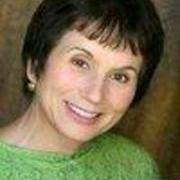Hundreds of people have asked me why someone develops an eating disorder. Of course many issues are involved, but from my exploration of this field over the years, I have concluded that there is one outstanding theme that runs through every person with an eating disorder whom I have encountered.
Early in their lives, people with eating disorders have experienced, on a sustained basis, relentless boundary invasion on every level.
When their physical, emotional, psychological, intellectual, sexual, and creative boundaries are consistently ignored and penetrated, people experience total boundary invasion. With no control and no way to end, protest, or, often, even acknowledge such invasions, these persons feel helplessness, despair, and a certainty that they are worthless to themselves or anyone else.
The consequences of such total invasion are vast. One consequence is an eating disorder. Having had so many boundaries disregarded, a person has no knowledge or skills in recognizing or honoring boundaries herself. She will eat or starve for emotional relief.
She may eat vast amounts of food for comfort value alone. She may deprive herself of food until her life is in danger. She has no internal regulator that tells her when she has reached her limit and experienced enough. Being oblivious to any boundaries means being oblivious to limits of any kind.
The compulsive overeater eats whenever and whatever she likes. She bases her choices on self-medication issues, not feelings of physical hunger.
The anorexic will not eat. There is no limit to her not eating. She will starve herself to death in search of relief from her emotional pain. She knows nothing of the experience of having enough. She couldn't say, "Enough," to an invader of her boundaries, and she can't say it to herself. The concept of enough has no meaning to her. She often feels that if she "disappeared," she might find some permanent relief.
I have heard countless anorexic young women talk ethereally, with a lost-in-a-beautiful-world-of-angels smile, of how wonderful it would be to become a vapor or a light dancing spirit in the clouds. Ah, such spiritual bliss, they imagine. In reality, it's the final self-protective act, to destroy their bodies and their lives completely. Then they can truly escape the complexities of being alive.
The bulimic will binge grotesque amounts of food. She will assault herself with more food than her body can tolerate.
The compulsive overeater will, at last, have to stop eating if only because of the pain in her distended stomach. Her body sets a final limit. The bulimic has no such limit. She experiences (in her mind) no consequences of the food assault on her body. When her body cannot bear more, she will vomit it all out. Then she will resume her binge. She may reach her body's limits many times. Each time she does, she can throw up again and continue.
Eventually she stops, because she is completely exhausted, or she is in danger of being discovered. "Enough" has no meaning to her. There are no limits and no consequences for her disregard of her boundaries.
Realistically, of course, there are plenty of consequences. Her behavior inflicts serious damage to her body. And each time she attacks herself with a binge-and-purge episode, she destroys more of her spirit, soul, self-esteem, sanity, health, and value to herself and others.
Each violation deepens her ritualistic behavior, and she becomes more entrenched in her disorder. The consequence is increasing anguish and despair. Yet the eating disorder is not the cause of that anguish and despair. The eating disorder exists to numb her from her already existing psychological agonies.
For a while, maybe a few years, the eating disorder successfully blocks her awareness of pain too difficult to bear. But eventually the protective device of the eating disorder becomes just another boundary invader, this time self-induced, that weakens and damages her even more.
What do I mean by a history of boundary violations? Blatant and extreme boundary violations involve sexual molestation, sexual abuse, and physical abuse. Much has been written about these areas now, especially in material exploring Post Traumatic Stress Disorder (PTSD) and Dissociative Identity Disorder (DID). Use your search engines to find some quality information posted on the Internet in these subject areas.
However, there are other kinds of boundary violations, and these are less dramatic, less discussed, more prevalent, and just as devastating to a persons psyche. When, in the name of caretaking, people in authority take over a young person's life, it constitutes boundary invasion.
When others deny her privacy, read her diary, borrow or take her things without permission, or use their ideas or goals or personalities to overwhelm her efforts in school or sports, that is a violation of her boundaries.
When others disregard or disdain her choices or deny her any control over her personal life, clothes, food, friends, and activities, they are invading her boundaries.
An invasion of boundaries also takes place when, in the name of caretaking, people give her no responsibilities of her own and attach no consequences to her actions. When the child or adolescent can have all the things she asks for without putting forth effort to earn such gifts, she learns nothing about personal effort, limits, consequences, or the meaning of enough. If she wants something, she gets it. That's all. If someone picks up her clothes, does her laundry, fixes her car, pays her bills, lends her money or things without expecting them returned, she experiences no boundaries and no limits.
If she doesn't have to keep her promises, if she doesn't reciprocate with caring actions for people who care for her, she learns nothing useful about herself in relationship to other people. The only thing she learns with certainty is that there are no limits to her behaviors or desires.
These boundary invasions are not loving acts, nor are they "spoiling" a child through overindulgence. Quite the contrary, they are acts of neglect. The child's taste, mind, capacity to learn, and ability to grow and function as an independent agent in the world remain unacknowledged.
When others, even well-meaning others, ignore her identity as a unique, developing, and competent individual and flood her with their personal agendas, she feels as if a steamroller had flattened out her psyche. She may learn to please, to manipulate, to compete, or to control, but she is unable to learn to be fully present in the world as her genuine self.
She doesn't learn that she has meaning and value. She doesn't learn that she can put that meaning and value within her to work to accomplish goals.
For example, if she breaks something, whether it is a lamp, a car, her word, or someone's heart, it is possible and healthier to give her the responsibility for making necessary repairs using her own resources and her own creativity. In such a process, she learns what effort means. She learns what responsibility and consequences for actions mean. She learns reasonable limits and reasonable expectations. She develops resources to make healthy and caring decisions in the future.
Without such lessons, she learns are the tricks involved in adapting quickly to the expectations of others or being manipulative to get what she wants. These are poor and insubstantial tools to rely on when building an adult life.
Somewhere inside, over time, she may gradually realize this. But without a sense of boundaries, she will only become bewildered and anxious. She will accelerate her practice of using her eating disorder as a way to numb her feelings of anxiety. She will use her manipulating skills to get what she wants from whomever she can exploit.
As time passes, fewer people in her life will allow themselves to be manipulated. The quality of her circle of associates will decline as she seeks people she can control with her inadequate methods of functioning in the world. She will find herself in bad company.
This becomes all the more reason to rely on eating disorder behaviors for comfort. The people around her are less reliable all the time. And finally, they tolerate her presence only because they can manipulate her.
She arrives at the total-victim position. Her manipulative skills backfire. People exist in this world who are better at manipulating and using than she. She has found them. She becomes their target and then their prey. Her dependence upon her eating disorder becomes her most valuable and trustworthy relationship.
Early in her development, she learned through massive boundary invasions (which perhaps seemed ordinary and unimportant at the time) that she was helpless to assert herself. She learned that she had no private or sacred space to cherish and respect. She could not acknowledge, even to herself, that she was being thwarted, invaded, controlled, manipulated, and forced to deny large aspects of her natural self. She had no recourse except to comply.
To succeed at being unaware of her natural tastes, curiosities, and inclinations and her pain in restraining her natural tendencies, she developed an eating disorder. Now that she's older and her manipulation skills are failing her, she only has her eating disorder to rely on. This may be the most crucial time in this person's life.
If her pain and despair are terrible enough and she is certain she cannot bear this way of living anymore, she still has choices. She can continue to rely on the eating disorder and by so doing take the path to self-destruction. Or she can reach out and get help.
This is a tough position for her. She's never known what enough was. Yet to choose to get help, she has to recognize that she has had enough pain. She's never known what a limit is. Yet she has to recognize that she has reached her limit and must choose between death and life. She has only known about pretense and manipulation. Yet she has to be honest to reach out for genuine help.
She feels massive anguish and pain before she stretches beyond her life pattern into what might bring her healing and recovery. She's reaching for something she can't imagine. It's difficult for a person with an eating disorder to decide to get help. She would have to allow herself to trust someone with knowledge of her real personhood.
She doesn't yet know that people who do respect and honor boundaries actually exist in this world. She doesn't yet know that there are people who can and will honor and cherish her most private and sacred inner spaces. She doesn't yet know that someday the trustworthy, respectful, steadfast, and competent caretaker she needs so badly can be herself.
Her first move toward recovery requires all the courage she can muster. Her recovery begins when with fear or rage, she rallies her courage to reach out for help.
Difficult, yes. But what she doesn't know yet is that she has been courageous all her life. She makes a grand discovery when she learns that she can apply her strength and courage to her own health. She can use her gifts to, at long last, be free of her eating disorder, be her genuine self in the world.
Professional Resources for Finding Help
Academy for Eating Disorders (AED)
American Anorexia and Bulimia Association (AABA)
Anorexia Nervosa and Related Disorders (ANRED)
Edreferral.com
International Association of Eating Disorders Professionals (IAEDP)
Joanna Poppink's Eating Disorders Resource List In-Patient Treatment Programs
National Eating Disorders Association (NEDA)
Joanna Poppink, Los Angeles psychotherapist, licensed since 1980 (MFT #15563), is deeply committed to bringing recovery to people suffering from eating disorders.
Her specialized psychotherapy practice is designed to allow clients to progress through anxiety situations to ongoing recovery from bulimia, compulsive eating, anorexia and binge eating. Her primary goal is to provide people with a way to achieve thorough and long lasting healing.
Eating Disorder Recovery book in progress through Conari Press
10573 West Pico Blvd. #20
Los Angeles, CA 90064
http://www.eatingdisorderrecovery.com
[email protected]





Add a Comment206 Comments
An interesting question to ask would be, "do children who are refed in a hospital or other setting have the same 'cure' rate as those refed by parents at home with the Maudsley method?" If they are, then this would support the hypothesis that eating disorders are caused by a brain diseased triggered by malnourishment. I do not know the specific statistics, but I do know that refeding alone does not 'cure' most people with ED, although it is one of many important components for healing. Perhaps the Maudsley method of refeeding indirectly reteaches parents and child something about boundaries and/or some of the many other inter-relational skills that perhaps contribute to the development and maintainence of EDs.
The questions about ED etiology and treatment suggested by all who have posed are intriguing. As with addiction, depression and other multi-factorial mental/brain illnesses we may never have an evidence-based "best" treatment. Different approaches work for different people. But the more we know, the better able we will be to identify the cause(s) of a particular individuals ED and offer the most appropriate treatment. This discussion has certainly encouraged me to keep reading, researching, and an open-mind when it comes to treating patients and continuing with my own recovery process.
Richelle
June 9, 2009 - 4:31pmThis Comment
Thank you Richelle! Very, very well said, especially "different approaches work for different people."
There are many different strong and emotional opinions when it comes to eating disorders (treatments, causes, etc.), especially when it involves a young person who is still dependent on their parents. Understandably, people are very passionate about this topic, especially the parents who are so desperate to help their sick child, who can die from their illness!
I completely understand that parents who have used a specific treatment that "worked" for their child would initially tend to feel that "their way" is "the only right way." It's what has saved their child's life, to this point! I'm sure I would feel exactly the same way if I'd encountered what these parents have been through!!! These parents have been through hell (a hell I cannot imagine!), and they most definitely mean well in stating their thoughts and opinions. They are only trying to help others, by sharing their stories of what worked for them.
I do, however, think it's so important to always keep an open mind. Not everyone of us are the same. Some of us have used different approaches that have worked for us. It does not mean "our way" is superior to what worked for these parents; it's only what worked for us and may also work for someone else (just like "their way" worked for them).
Personally, I believe that eating disorders are a "reaction" to certain stresses in life (no matter what age - everyone has stresses in their lives, even young people!). As a woman who has suffered from eating disorders for decades, I know what has worked for me. And I believe that I've had eating disorders for so many, many years that I need to be prepared for it to rear it's ugly head at any time. I must be prepared for this, so that if/when it happens, I'll recognize it for what it is, and not allow it to get out of control again.
Unfortunately, my own eating disorders began at age 12 and my parents did not recognize it for what it was (in the mid-70's). Now, as a grown woman and a parent myself, I've lived independently on my own since I was 18, I am fully responsible for myself and my own emotional/physical health and well-being.
What works for me? I've been seeing the same counselor/therapist every week for the past 4 years. She is herself a recovering anorexic (she's 54 now, but was hospitalized at age 13 in a communist country). She understands exactly what I go through in my life (I've been a single parent for 15 years, she was a single parent for 14 years). Sometimes, it's as if we've lived the same life! She's not only my counselor, she is my friend, my advocate, my no. 1 cheerleader!
Along with my wonderful, special counselor, I have an awesome family doctor (same dr. for over 14 years - who is not only open minded, but always well read and up to date on current treatment options, for everything), a great nutritionist who specifically treats eating disorders (also a recovering anorexic herself), and a psychiatrist who treats eating disorders and addictions (she used to teach at two well known medical schools).
Still, even with all the wonderful support I've managed to round up, I must always be aware of who I am, and that I could "react" to life's stresses by acting out in my eating disorders at any time. It's the way my brain was programmed for over 30 years. Through lots of hard work over the years, I know exactly who I am today.
I believe in not only being open-minded about eating disorder treatment options, but also researching and learning about it in every way I possibly can. Knowledge is power!
Peace to You All!!!
June 9, 2009 - 5:13pmShelley
This Comment
Let’s take a hard look at your hypothesis for this article:
“I have concluded that there is one outstanding theme that runs through every person with an eating disorder whom I have encountered….people with eating disorders have experienced, on a sustained basis, relentless boundary invasion on every level.”
Allow me to draw your attention to some very interesting developments in the realm of legal psychology. ‘Research on memory fallibility is now front and center, in the context of police investigations and jury verdicts. …Although juries and decision-makers place great reliance on eyewitness identification, they are often unaware of the danger of false memories.’
“Several studies have been conducted on human memory and on subjects’ propensity to remember erroneously events and details that did not occur. Elizabeth Loftus performed experiments in the mid-seventies demonstrating the effect of a third party’s introducing false facts into memory.” This study clearly demonstrated…”The introduction of false cues altered participants’ memories.” …”Courts, lawyers and police officers are now aware of the ability of third parties to introduce false memories to witnesses.”
“So what is an "original memory?"6 The process of interpretation occurs at the very formation of memory—thus introducing distortion from the beginning.”… “Every act of telling and retelling is tailored to a particular listener; …The act of telling a story adds another layer of distortion, which in turn affects the underlying memory of the event. This is why a fish story, which grows with each retelling, can eventually lead the teller to believe it.”
“Experiments conducted by Barbara Tversky and Elizabeth Marsh corroborate the vulnerability of human memory to bias.” Their research showed that “Memory is affected by retelling, and we rarely tell a story in a neutral fashion. By tailoring our stories to our listeners, our bias distorts the very formation of memory—even without the introduction of misinformation by a third party."
I’ve quoted liberally from this article: http://agora.stanford.edu/sjls/Issue%20One/fisher&tversky.htm
Your hypothesis is built on anecdotal experience, patients telling you what you expect to hear. The longer you base your practice on the assumption that “boundary invasion” is the key to understanding eating disorders, the greater the likelihood you’ll miss all evidence to the contrary. Of all people, I would expect you to understand how easily a therapist can influence a patient’s perceptions of their own past.
When we believe every problem is a nail, we never learn how to use anything but a hammer.
June 9, 2009 - 3:49pmThis Comment
May I ask why your article constantly refers to the afflicted person as a "she" or a "her"? Is there a reason why you are being gender specific? Do males afflicted by these terrible diseases mean too little to even acknowledge? You do realise that as an "expert" with this style of writing you are contributing to a large proportion of silent males who are afraid to voice their problems?
June 9, 2009 - 3:23pmThis Comment
Amy, there is no data to support the point of view put forth by Joanna.
Perhaps something from the 19th century but certainly nothing from THIS century.
June 9, 2009 - 3:11pmThis Comment
I have read through these posts and may be missing something but I am still waiting to see the data that backs up the premise/title of this article. I find it unfortunate that an article like this would be thrown out there without the appropriate data to back it.
June 9, 2009 - 2:33pm-Amy
This Comment
I am an ED sufferer myself, and am currently 28, having an EDs on and off (mostly on) for the past decade or so. I went to several psychotherapists, and may have even read this article when it was first published. I spent years looking for what might have "caused" my eating disorder. My mom and I were enmeshed. She was too dependent on me. Or maybe my dad wasn't involved enough. My brother had learning disabilities- did I feel the pressure to be everything to my family?
Maybe. Maybe not.
It was only when I started seeing a therapist who had me stop looking for the cause and start normalizing my eating that I began to make any progress. What I learned about family pathology was this: every family has it. If you spend enough time in therapy, sifting through enough memories and interpreting and re-interpreting enough scenarios, you will find boundary violations, you will find enmeshment, you will find that "emotions weren't always expressed freely." I've never met anyone who could emote freely, and most of them never had EDs. Now that I'm in recovery (not without lots of slips and bumps), I find that my family is probably less pathological than many. My parents could NOT have caused my eating disorder. Period. Full stop.
When you say "causation," there has to be a long line of epidemiological research to verify this fact. When we say cigarette smoking can cause cancer, we know the cellular mechanisms by which this happens--the components of the cigarettes that bind to the DNA and cause mutations, and which mutated genes can go on and spur unrestricted cell growth. Ta-da! Cancer. We don't know that with EDs. We do know that about 75% of your risk is GENETIC. We do know that dieting and/or malnutrition likely TRIGGER the eating disorder. Genes and environment, culture and chemistry, all combine in eating disorders and in every other illness out there. You can't separate nature and nurture. So to say that "boundary violations" cause eating disorders is a gross overstatement and not in line with the latest research. No, we don't know precisely what causes eating disorders but we do know that it's a hell of a lot more biology and a lot less parents/culture/something nebulous called "boundaries." EVERYONE has had boundary violations. EVERYONE has seen skinny models. Yet only a few develop eating disorders.
Carrie
June 9, 2009 - 2:29pmwww.edbites.com
This Comment
Our 18 year old daughter has been fully recovered from her triggered eating disorder predisposition for over a year. She was very ill for several months and close to death at one point. We knew we couldn't have 'caused' the ed (diagnosis EDNOS)....we nor she fit any of the 'traditional' profiles for eds....but we were the dutiful parents of a child w/an ed, so we tried hard to find/figure out what was wrong with our family/us as parents ($$$) that could have caused our incredibly healthy, wonderful, happy daughter to make such a devastating 'choice'. FINALLY, we learned about the Maudsley Method and read current research.
We successfully re-fed our daughter at home in a very short period of time, and she has remained healthy since. She understands that she has a biological (genetic) predisposition to triggering an ed if she should become malnourished, and she takes full responsibility (as is age appropriate) for keeping herself fully nourished.
In hindsight, it is easy to see/understand how our daughter became inadvertantly malnourished during a late teen growth spurt which accompanied a typically busy teen schedule and an extended period of physical exertion through normal extracurricular activities. Once malnourished (which, by the way, isn't necessarily accompanied w/immediate weight loss), with the (unknown) predisposition for an ed, she crashed. A beautiful life went spinning out of control.
I want to encourage any parents reading this 'discussion' that your child can fully recover from an eating disorder with full nutrition, supervision (to ensure what goes in, stays in), rest and adequate time (and perhaps counseling) for the brain to heal. Full recovery isn't only possible, it is highly probable with your immediate nutritional intervention.
I remember wondering if my husband and I would have to be responsible for feeding our daughter forever. No. With full nutrition and stabilized healthy body weight, the brain heals. With that healing and cognitive maturity (which isn't fully realized until the mid 20s), our loved ones are not only able to take responsibility for their self care, they want to.
That was our familiy's experience with an ed, and I have learned that our experience is not unusual.
Moms and dads, it's not your 'fault'; our genes are our genes. Read, research, pray.....and nourish. Lose the guilt and get back to the table with your child asap.
I appreciate this 'discussion' and the opportunity to offer hope to parents/caregivers of triggered ed children/loved ones. Thank you.
June 9, 2009 - 2:11pmThis Comment
A few years back, an article appeared in The Boston Globe.
Title: The ancestry of anorexia: Blame Biology, Not Parenting
http://www.boston.com/yourlife/health/mental/articles/2003/12/30/the_ancestry_of_anorexia/
A "must read" for all ED specialists, parents/loved ones and sufferers.
June 9, 2009 - 2:09pmThis Comment
I’ve been thinking about this ‘boundary’ issue. Between parent and child (or teen), the term ‘boundaries’ has a somewhat different connotation than it would between a therapist/patient.
Ideally, a parent needs to set, teach and model appropriate boundaries for their children in all areas of life--behavioral, verbal, physical, social, etc.
When a child ‘crosses a boundary’, the parent corrects the child in order to keep them safe, to teach them how to take care of themselves and how to negotiate and get along in life. Boundary ‘limits’ are set by parents dependent on the child’s age and developmental stage.
If you’ve a child, teen or even young adult that happens to show signs of a mental illness (an ED in the instance we’ve been talking about), what happens to boundaries? Do you perhaps violate a child’s boundaries by reading their diary if you fear they are self-harming, suicidal or abusing a substance? How do you handle issues around eating? Do you insist (lovingly) upon proper eating and full nutrition no matter what you see/hear from the child? Or, do you view it a ‘choice’ the child must make to eat—when, what, how much and even IF? In the case of a mentally healthy young person, there is room for flexibility, but even then parents typically give ‘controlled choices’ (boundaries/limits) within which children may make decisions. You may chose what you’d like to wear to school, but the ‘boundary’ is that it must be appropriate to the weather and appropriate to the school’s dress code. You may serve yourself what you’d like at dinner, but you must join the family for meals and must choose from among a variety of food groups. When a child/adolescent/teen becomes ill with an eating disorder, they regress both emotionally and physically. If depressed (and this is common) making even small decisions becomes very difficult and anxiety provoking.
At times (and this is a term I’ve heard somewhere, but maybe not in relation to parent/child relationships), you—as a responsible, loving parent--must cross boundaries. This is really different than an egregious violation such as verbal, physical or sexual abuse. Crossing boundaries is not necessarily a bad thing; in fact, in certain instances I would argue that it is absolutely crucial to the health and well being of an ill family member. If that member is incapable of setting their own boundaries and, as a result, is not taking care of themselves properly, is incapable of making decisions in their own best interest, and is held hostage by an illness (not eating, making themselves sick by purging, etc.), then crossing a boundary is the loving, right and ethical thing to do until that person is once again well enough to take on the job for themselves.
I don’t condone reading someone else’s diary. A confession here: I have done it once, at a time when my child began to withdraw socially from friends and family, when she began actively self-harming and starving and when she began making suicidal statements. Normally, this is not something I would ever do. I haven’t done it since (and there is no need, as she is doing much better). At the time, I was desperate for a better understanding of her mind. In reality, however, reading a few pages in her diary did not tell much more than I already knew with my own (disbelieving) eyes. The fact that she left her diary open, all over the house, seemed to me a not too subtle call for help in it’s own way. Did I feel good about it? No. Would I do it ever again? I can’t answer that. Each situation is so unique and presents it’s own ethical dilemma.
The closest I can come is to say that, inside me, I feel the difference between violating someone on a ‘sustained basis on every level’ and the real and urgent need to ‘cross boundaries’ for reasons of safety and health. Parents and family members need to be supported in doing this, and to do it both well and ethically. They also need to relinquish this just as soon as it is safe to do so.
anne
June 9, 2009 - 12:55pmThis Comment